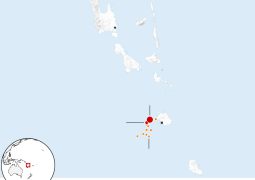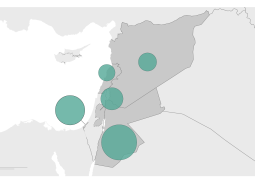$15 Billion Flee Kazakhstan Amid Calls for Tighter Controls

By Bahit Ismailov
Approximately $15 billion worth of cryptocurrency has been withdrawn from Kazakhstan, a figure disclosed by Berik Sholpankulov, Deputy Chairman of the National Bank. The exodus highlights systemic issues in the country’s digital finance regulations.
Billions in the “Gray Zone”
According to Sholpankulov, the primary driver of this significant capital outflow has been the absence of robust regulatory frameworks governing digital finance.

“Today, the volume of crypto assets withdrawn from the country amounts to $15 billion. The fact is that there was insufficient administrative and legal regulation in place to allow citizens to invest safely,” he stated during a briefing.
In response, the National Bank plans to introduce sweeping changes, including administrative and criminal penalties for the illegal circulation of cryptocurrencies and their unauthorized transfer abroad. Sholpankulov also indicated that the authorities may soon begin naming individuals involved in illicit transactions.
“Perhaps we will also hold a briefing and announce by name who spent what in the ‘gray’ zone. But [there] will already be administrative and criminal prosecution,” he stated.
Transparency and Licensing: Key Reforms
Legislative amendments are currently under development to legitimize and open Kazakhstan’s digital asset market. The initial step will involve licensing all market participants, such as cryptocurrency exchanges and digital service providers, through the Astana International Financial Center (AIFC).
Licensed entities operating through the AIFC will enable residents to legally buy and sell digital assets. All transactions will be monitored and transparent, giving the state tools to prevent illegal financial flows.

A dedicated platform is also being launched under the National Bank to test emerging digital technologies and services before a broader rollout.
Strategic Shift Toward a Digital Economy
These reforms extend to Kazakhstan’s cryptocurrency mining sector. Large-scale operators will be permitted to build independent power plants to reduce their reliance on the national power grid, thus improving operational stability and economic feasibility.
Deputy Minister of Digital Development Kanysh Tuleushin emphasized that establishing a legal market for digital assets marks a pivotal phase in the country’s economic transformation. The relevant authorities aim to implement a fully regulated and transparent cryptocurrency market by the end of 2025.
Kazakhstan’s competitive advantages, including affordable electricity, vast space, and a supportive legal infrastructure, position it well to attract investment and build a robust digital ecosystem. If fully realized, the reform package could elevate Kazakhstan to a leading position in the region for legal cryptocurrency operations, stimulating job creation, and curbing shadow capital outflows.
Previously, The Times of Central Asia reported that MP Olzhas Kuspekov had proposed strengthening state controls over cryptocurrency circulation, including blocking access to unlicensed exchange platforms.
Kazakhstan Shuts Down Over 3,500 ‘Illegal’ Cryptocurrency Exchanges
Authorities in Kazakhstan have shut down over 3,500 cryptocurrency exchanges operating illegally, according to an announcement from the Kazakh regulator, AFM RK. The crackdown was the result of coordinated efforts by the National Security Committee and the Ministry of Culture and Information, The Caspian Post reports citing foreign media.
In 2023, Kazakh authorities blocked access to Coinbase, citing alleged violations of the country’s digital asset laws.
Liquidation of Illegal Crypto Platforms
In 2024, the regulator liquidated 36 illegal crypto exchanges with a combined turnover of 60 billion Kazakhstani tenge (over US$113 million). Additionally, it froze and confiscated assets worth 4.8 million USDT, a popular stablecoin, from these platforms.
Authorities also uncovered two cryptocurrency pyramid schemes, returning 545,000 USDT to affected victims and freezing 120,000 USDT held by the platforms.
“AFM continues to work with international partners to enhance control over crypto transactions and combat their use for criminal purposes. Amendments to the legislation have also been developed, introducing liability for providers of digital assets in cases of money laundering violations. Checks on cryptocurrency transactions in financial institutions have been strengthened,” the regulatory announcement stated (translated from Russian).
“AFM will continue to improve tools for effectively monitoring financial transactions to combat criminal schemes involving virtual assets.”
Major Exchanges Betting on Kazakhstan
Meanwhile, major global crypto exchanges are expanding their presence in Kazakhstan. In 2023, Bybit secured a full crypto exchange licence from the Astana Financial Services Authority (AFSA). Binance also received formal consent from the AFSA, enabling it to obtain a full regulatory licence.
The National Bank of Kazakhstan launched a pilot program to explore the development of the digital tenge, a central bank digital currency (CBDC). The central bank demonstrated improvements in value-added tax (VAT) reimbursement processing using digital fiat.
https://caspianpost.com/economics/kazakhstan-shuts-down-over-3-500-illegal-cryptocurrency-exchanges
- Previous Putin meets Turkish FM Fidan during his visits to Moscow
- Next Kuwaiti Emir strips 37 000 of citizenship, mostly arab women from nieghboring states
















